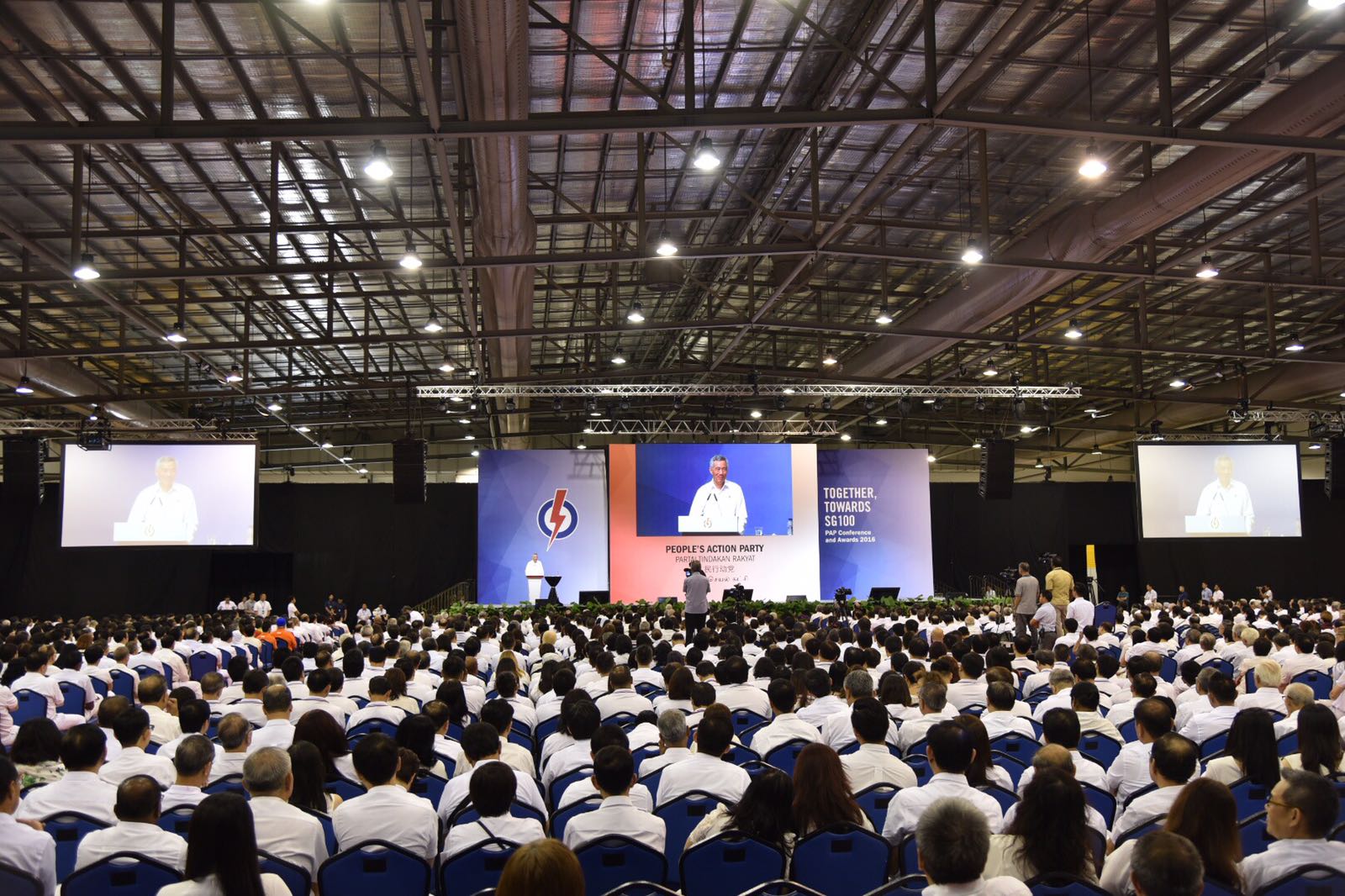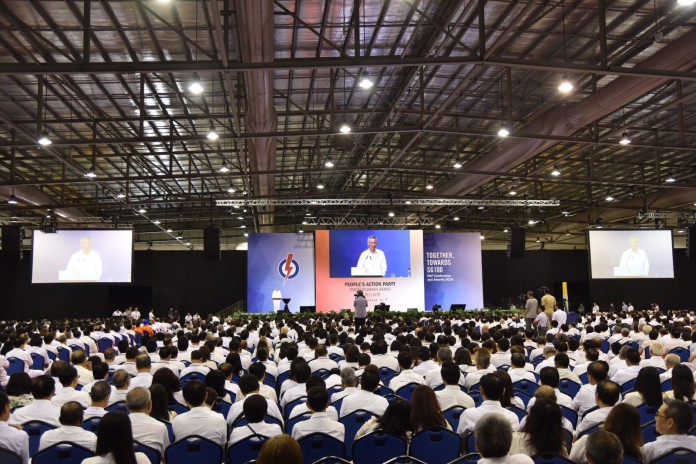SINGAPORE: Against a trend of developed countries turning inwards and adopting a more protectionist, nativist approach, Singapore must remain open, said Prime Minister Lee Hsien Loong on Sunday (Dec 4).
In his speech at the 34th People’s Action Party (PAP) Conference held at Singapore Expo, Mr Lee pointed out that the events of Brexit and the US presidential elections – which he called “another very nasty campaign” – were the byproduct of unhappy voters and divided societies.
“Voters are fed up, not just with particular parties or individual leaders but with the whole system,” said Mr Lee, who is the PAP’s secretary-general. “Because they felt the elite is out-of-touch; and the system is not working for them.”
He said this was a mood also spreading across Europe ahead of its election season next year. “Extreme parties on both the left and the right are strengthening, gaining support,” said Mr Lee. “They can’t govern, they offer no workable alternative, but voters still support them – doesn’t matter, bring the house down.”
“These changes impact not just individual countries, but also the whole international order and environment – the world we live in,” he said, noting that developed countries are turning away from the same broad objective of prosperity and the shared perspective of cooperation.
“Instead of being open, self-confident, and proud of their own countries, and seeking win-win opportunities with other countries, now voters have become insecure, inward-looking, anxious about their future,” said Mr Lee. “When others succeed they think of it as a win-lose proposition, and so try to shut themselves off from the rest of the world.”
“This looks like the trend now,” he said. “I do not know how far it will go, but I do not like the direction it is going. If more countries turn this way, the world is going to change, and change for the worse.”

SINGAPORE’S PLACE TODAY
The changes around the world will have major consequences especially for small, open countries like Singapore, said Mr Lee.
“We have always depended on open trade, making friends around the world, looking for opportunities to cooperate with others,” he said. “We have relied on a secure, peaceful Asia, an international order where countries big and small cooperate and compete according to rules which are fair to all; where small countries have a right to their place in the sun.”
“That is how we have prospered these last 50 years.”
He added: “Yes, we worked very hard, and earned our success. But we were also very lucky to enjoy this international environment. We attracted foreign investments, negotiated FTAs, worked with other countries, expanded our exports, traded, prospered.”
But now, said Mr Lee, other countries are flexing their muscles and becoming increasingly assertive.
“Nobody can tell how relations between the big powers will develop,” he admitted. “If US-China relations grow tense, Singapore is going to be in a very difficult spot, because we regard both as our friends and do not want to have to choose between them.
“At the same time, world trade is flat, obstacles to trade are increasing. Our exports are not growing very much. It’s harder for countries to prosper together, to achieve win-win outcomes.”
He cited the Trans-Pacific Partnership (TPP), which 12 countries, including the US and Singapore, spent six years negotiating for what he called “a good deal”.
“But now, President Trump has declared the TPP is bad for the US, and that he will pull the US out of the TPP. Without the US, there will be no TPP,” said Mr Lee.
“We have to accept the world as it is, not as we wish it to be. We still hope that one day we will have a regional trade deal including the US and other big countries,” he said. “But meanwhile, we have to continue to pursue trade liberalisation with others in the region, for example through the Regional Comprehensive Economic Programme.”
“We must continue to cooperate with our major partners – the US, China, ASEAN and others,” Mr Lee concluded. “Because if we close up like other countries, our people will be finished.”





